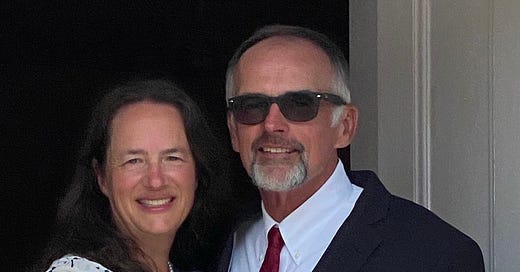On April 8, 1865, General Ulysses S. Grant was having a hard night.
His army had been harrying Confederate General Robert E. Lee's for days, and Grant knew it was only a question of time before Lee had to surrender. The people in the Virginia countryside were starving, and Lee's army was melting away. Just that morning a Confederate colonel had thrown himself on Grant's mercy after realizing that he was the only man in his entire regiment who had not already abandoned the cause. But while Grant had twice asked Lee to surrender, Lee still insisted his men could fight on.
So, on the night of April 8, Grant retired to bed in a Virginia farmhouse, dirty, tired, and miserable with a migraine. He spent the night "bathing my feet in hot water and mustard, and putting mustard plasters on my wrists and the back part of my neck, hoping to be cured by morning." It didn't work. When morning came, Grant pulled on his clothes from the day before and rode out to the head of his column with his head throbbing.
As he rode, an escort arrived with a note from Lee requesting an interview for the purpose of surrendering his Army of Northern Virginia. "When the officer reached me I was still suffering with the sick headache," Grant recalled, "but the instant I saw the contents of the note I was cured."
The two men met in the home of Wilmer McLean in the village of Appomattox Court House, Virginia. Lee had dressed grandly for the occasion in a brand new general's uniform carrying a dress sword; Grant wore simply the "rough garb" of a private with the shoulder straps of a lieutenant general.
But the images of the wealthy, noble South and the humble North hid a very different reality. As soon as the papers were signed, Lee told Grant his men were starving and asked if the Union general could provide the Confederates with rations. Grant didn't hesitate. "Certainly," he responded, before asking how many men needed food. He took Lee's answer—"about twenty-five thousand"—in stride, telling the general that "he could have...all the provisions wanted."
By spring 1865, the Confederates who had ridden off to war four years before boasting that their wealthy aristocrats would beat the North's moneygrubbing shopkeepers in a single battle were broken and starving, while, backed by a booming industrial economy, the Union army could provide rations for twenty-five thousand men on a moment's notice.
The Civil War was won not by the dashing sons of wealthy planters, but by men like Grant, who dragged himself out of his blankets and pulled a dirty soldier's uniform over his pounding head on an April morning because he knew he had to get up and get to work.
—
Notes:
U.S. Grant, Personal Memoirs of U.S. Grant (New York: Charles L. Webster & Company, 1885), volume 2, chapter 67, “Negotiations at Appomattox,” at https://www.gutenberg.org/files/4367/4367-h/4367-h.htm#ch66










Inspiring and revealing history. Thank you.
On another note, I write from Vancouver, BC. It’s where people and cultures from around world exist in peace and are celebrated.
It’s halftime at a soccer match and Indian women are dancing on the field to recognize Vaisakhi, the start of Spring. Everyone is cheering.
If only the confederates would consider surrendering again to cure our collective headache.